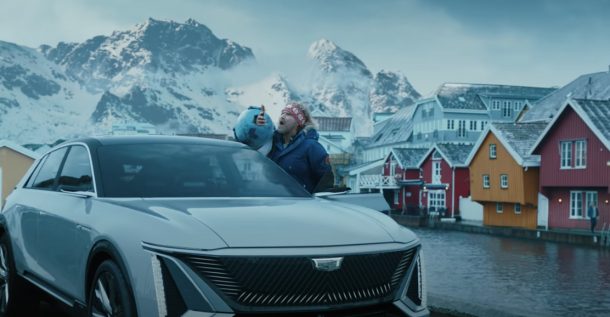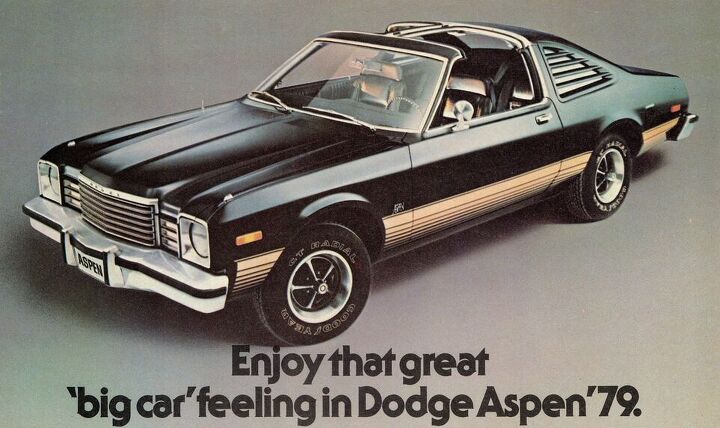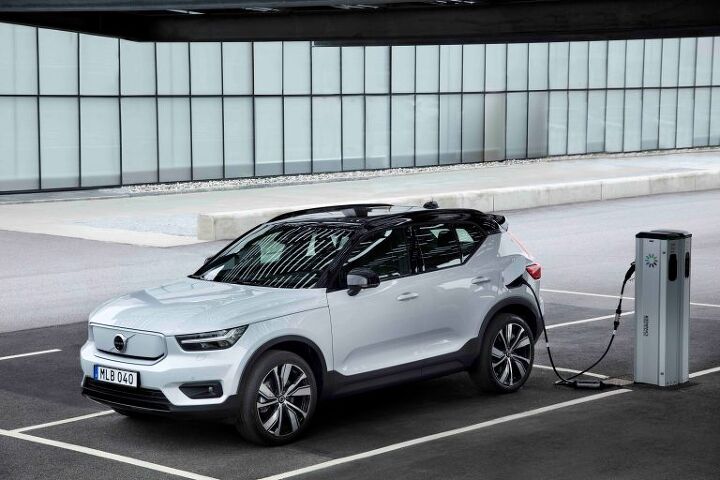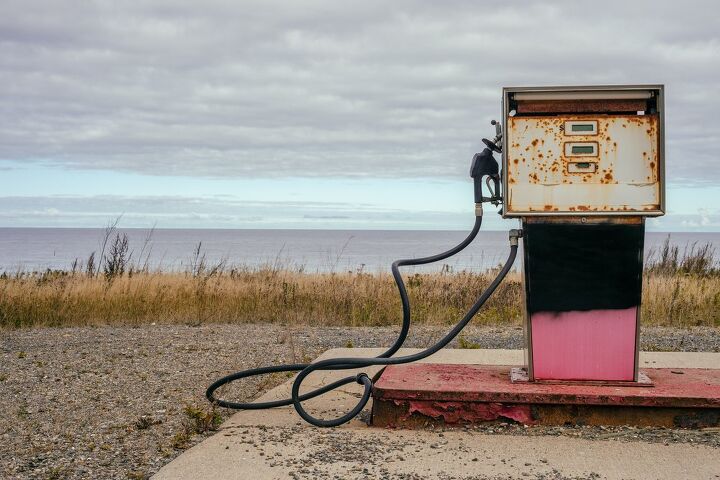#Government
White House Presses Taiwan On Semiconductor Shortage
Automakers around the globe have been issuing warnings for weeks that the semiconductor shortage will eventually result in fewer cars and leaner profitability reports. But the absent chips are affecting just about every industry producing modern connected devices, creating fears that electronic prices could skyrocket as availability dwindles. Lockdowns effectively crippled semiconductor supply lines right as demand peaked and everyone is starting to get a little worried about how it’s going to impact production in other industries.
The White House is reportedly taking steps to mitigate the issue by tasking Brian Deese (Director of the National Economic Council) and Jake Sullivan (National Security Adviser) with coming up with a solution. It’s also asking embassies to assist chip suppliers around the world however possible and hopefully suss out a way to stop the global shortage. Meanwhile, Deese and Sullivan will be focusing the brunt of their efforts on Taiwan.
European Auto Lobby Demands More EV Charging Stations for Hundredth Time
The European Automobile Manufacturers’ Association (ACEA) is demanding the EU install more electric vehicle charging stations in a letter co-signed with Transport & Environment (T&E) and the European Consumer Organization (BEUC). This marks the hundredth time (rough estimate) an auto lobbying entity has tried to pressure the government into spending a fortune to drastically alter the European infrastructure to support the planned glut of EVs.
But it might be a fair request. Regulatory actions have effectively forced the industry into a corner and it now seems giddy at the prospect of an electrified world. The only real downside is that the charging infrastructure and power grids aren’t ready. ACEA estimates that the EU will need to build one million public charging points by 2024, with hopes of seeing three million installed before 2030.
Let’s see how feasible that is before it’s tried in our neck of the woods.
GM Hypes Norway's EV Leadership
Actor Will Farrell describes Norway’s EV leadership in one of the more amusing Super Bowl commercials, and how General Motors is looking to change all that here at home.
Tesla CEO Accused of Kowtowing to China: A Tale of Two Musks?
Tesla CEO Elon Musk came under fire this week after Bloomberg wrote a piece accusing him of playing nice with totalitarian China following years of showing totalitarian California a complete lack of respect. With the semiconductor shortage leaving the industry in a holding pattern, tabloid journalism seems to be filling in the gaps to the dismay of yours truly. However, Musk’s relationship with both countries remains relevant since they represent the two largest automotive markets on the planet and will dictate the trajectory of the business.
He’s being accused of being extremely apologetic to Chinese regulators, despite having become infamous for acting in the exact opposite manner in the United States. As you might recall, American Musk is all about flagrantly ignoring the rules and telling the government regulators to take their concerns into the bathroom where they’ll have the privacy necessary to stick them where the sun doesn’t shine. When it comes to high-IQ billionaires, our Elon is the bad boy’s bad boy. But Chinese Musk is said to be deferential and happy to comply with the request of oversight groups before they become official mandates.
He sounds like a total traitor! At least, that’s how China’s state-run media framed it before Western outlets took the reporting and made Elon seem even worse on Tuesday. The story has since been spreading online, encouraging this website to take another look to see if Mr. Musk is actually the double-crossing villain that’s being claimed.
California Wins the Gas War, Fickle Automotive Coalition Realigns Position
The Coalition for Sustainable Automotive Regulation (CSAR) is officially withdrawing from a lawsuit between California and federal authorities over the coastal state’s ability to establish its own emissions standards. California leadership had vowed to ignore the Trump administration’s proposed rollback and began making binding side deals with automakers (specifically BMW, Ford, Volkswagen, Volvo, and Honda) committed to adhering to the aggressive limits established under President Obama. Unfortunately, this ran the risk of undermining the revised national standards penned shortly after the United States became energy independent. It also set up the CSAR to embrace any entity that had views conflicting with California Air Resources Board.
Federal concerns were that the Golden State setting its own targets would butt heads with the relaxed national benchmarks and ultimately divide the U.S. market and may even influence the types of vehicles that were manufactured for all of North America. But the issue became moot once President Biden broke the record for executive orders by signing 22 in his first week. Predictably, the brunt of these were designed to instantly undo any actions taken throughout the duration of the Trump administration and included one directing the Department of Transportation and EPA to reconsider the 2019 decision to remove California’s authority to limit tailpipe emissions by April and revise the fuel-efficiency standards for automobiles by summer.
Dodge CEO Hints at Second Malaise Era, Blames Regulation
Dodge CEO Tim Kuniskis has repeatedly suggested that electrification would be a keystone trait of tomorrow’s automobiles. But he never sounds truly gleeful about the prospect, injecting the level of joy one might reserve when announcing that the trip to the grocery store after noticing spartan shelves in the kitchen. Kuniskis is aware that Dodge’s lineup caters heavily to automotive size queens and that its ability to manufacture those models is swiftly coming to a close.
Despite the former FCA giving the brand the go-ahead to manufacture V8-equipped behemoths like the Hellcat, the newly formed Stellantis auto group may be less inclined to continue those efforts and the freshly installed Biden administration seems wholly committed to doubling down on environmental regulations that were already at odds with high-output automobiles. Kuniskis typically stops short of discussing these issues as the death knell for automotive performance, suggesting instead that electrification will open new doors for the industry while closing a few others. But he occasionally issues statements hinting that he’s not quite so enthralled with or as hopeful about EVs as his contemporaries.
Transportation Secretary Elaine Chao Resigns Amidst D.C. Chaos
Elaine Chao, the U.S. Secretary of Transportation, has resigned in the wake of the unrest in our nation’s capital yesterday.
Biden Reportedly Selecting Buttigieg as Transportation Secretary
Despite the obscene level of confusion surrounding the U.S. election that’s been left unresolved, the media has reported that Joe Biden is supposed to become the next president (Ed. note — not only that, but the Electoral College has certified Biden’s win). While we cannot speak to continued legal challenges being presented or the now-reported FBI corruption probe looking into international money-laundering allegations against the Biden family, we do know that Joe is supposedly tapping Pete Buttigieg as Transportation Secretary.
The former mayor of South Bend, Indiana, who has never held federal office before, is being reported by Reuters as the former VPs pick for the cabinet role. While that should just about wrap up this story, the outlet wanted to make sure you were aware of the importance of this somewhat speculative news.
Automotive Alliance Manages to Delay Revised Massachusetts Right to Repair Law
The Alliance for Automotive Innovation (AAI) has managed to stall enforcement of a ballot measure recently passed in Massachusetts that expands access to data related to vehicle maintenance and repair. Last week, the relatively new lobbying/trade group asked a U.S. district court for a temporary order that would bar implementation of the state’s new right-to-repair rules aimed at giving vehicle owners more direct control of their private data and independent repair shops a fighting chance of staying in business. But the state’s attorney general has already decided that the rules are invalid until after federal cases have been decided.
The decision represents another victory for giant, multinational corporations at the expense of disgusting citizens interested in controlling their personal information and small business owners who have had it easy for far too long.
Pennsylvania Dealer Group Accused of PPP Fraud, Extorting Cash From Staff
When the United States announced it would be offering payroll relief to the countless small businesses it impacted with government shutdowns intended to combat COVID-19 earlier this year, everyone breathed a sigh of relief into their mask. Unfortunately, the Paycheck Protection Program (PPP) became a confusing bureaucratic mess almost instantly. It wasn’t clear how companies would account for part-time or contracted employees, numerous banks denied help to those with less than stellar financial histories, and the application website repeatedly crashed — which was awful for a service that was designed to accommodate candidates on a first-come-first-serve basis.
There were also numerous provisions that allowed big business to take advantage if their individual locations were small enough and loopholes for companies that weren’t even required to shut down operations. Criticisms understandably began to surface, followed by months of commercials asking concerned citizens to report instances of fraud. One such example came into focus this week after a former sales representative for a Pennsylvania-based dealership group launched a federal lawsuit against their ex-employer alleging that it had violated the False Claims Act in relation to PPP.
Report: Japan May Ban Internal Combustion Vehicles Next Decade
The Japan Broadcasting Corporation, better known as NHK, reported that the island nation is considering banning new internal combustion engine cars by the mid-2030s this week. While we will continue to maintain that such an effort seems unrealistic when confronting the current realities of the market, Japan’s alleged plan offers a bit more leeway than proposals pitched in parts of Europe and North America. Nippon also finds itself in a better position in the preferred mixed approach of allowing mixed powertrains, which would allow the industry to continue production gasoline-driven hybrids.
For starters, the Asian country has a fairly comprehensive hydrogen fueling network thanks to its small size. It’s also in a position that would make nationwide EV charging more feasible than regions with plenty of wide-open spaces. But automakers aren’t making a peep on the issue, preferring to leave it up to regulators and the market.
Volvo CEO Says Governments Should Just Ban Gasoline Powered Cars
Volvo Cars’ chief executive, Håkan Samuelsson, believes a ban on gasoline-driven vehicles would be a more effective way to force groups to go electric than continuing to offer subsidies on battery-powered automobiles. The announcement comes as part of the Financial Times’ “Future of the Car Summit,” where Samuelsson will proclaim the internal combustion engine “a technology of the past.”
In related news, Volvo Cars is also in negotiations to merge with China’s Geely Automotive and has renewed its commitment toward becoming an electric-only brand by 2030. The latter issue will also be brought up during Wednesday’s Car Summit, with the CEO praising the United Kingdom’s promise to eliminate the sale of new gasoline and diesel cars that same year.
What miraculously convenient timing.
Gas War: Ford Urges Other Automakers to Join the Californian Coalition
The Ford Motor Company is asking automakers to join it in supporting Californian vehicle emissions targets aimed at supplanting the rollback that was supposed to become the national standard. General Motors has already abandoned its support of the Trump rollbacks, which offered concessions to appease environmental groups but ultimately targeted more lax fueling regulation while seeking to eliminate California’s ability to self regulate as a way to curb its influence. But industry leaders are under the impression that a President Biden would attempt to swiftly transmission back to Obama-era regulatory targets or simply adopt the California model that’s been at odds with the national standards established by the Trump administration.
Considering how aggressive the Biden-Harris energy/environmentalism platform is, it certainly seems a plausible scenario and certain automotive executives feel that it would be best to go into 2021 aligned and supportive. The matter is even scheduled to be brought forward during Tuesday’s virtual auto trade association meeting.
U.S. Government Awards Huge Transportation Contract to Uber, Lyft
The General Services Administration (GSA), responsible for managing services for federal agencies, issued a five-year federal contract to Uber and Lyft. Confirmed by Veronica Juarez, Lyft’s vice president of social enterprise and government, on Monday, the deal estimated to be worth somewhere in the neighborhood of $810 million and allows the ride-hailing firms to offer public agencies a direct line to their transportation services.
While federal employees have always been able to utilize the services, the new arrangement makes them semi-compulsory for some of the millions of government employees involved. Meanwhile, Uber and Lyft can now work directly with officials to promote their services. With the recent passing of California’s Prop 22, which issued special legal protections to ride-hailing companies, the duo seemed to be experiencing a run of good fortune late in the year. That doesn’t guarantee that they’ll suddenly become profitable entities. But they could be with sufficient government support — which seems increasingly likely for reasons we’re about to dive into.
GM Switches Sides in the Gas War, Joins California/Biden
General Motors has changed its mind on backing the Trump administration’s effort to supplant Obama-era emission regulations with something more manageable and prohibit California from setting its own emissions rules. Of course, the coastal rules aren’t really just for California — it desperately wants to export them to the rest of the country and has made rather incredible headway for not being the federal government. The coastal region has already convinced over 20 states to follow in its footsteps and even amassed support from auto manufacturers like BMW, Ford, Honda, and Volkswagen Group.
Other automakers, including General Motors, felt the Trump plan would give them more flexibility and undoubtedly make them less subject to government fines. However, with a Biden presidency assured without Trump and Co. having an extremely powerful voter fraud case, GM has become a turncoat. On Monday, CEO Mary Barra issued a letter to environmental groups stating that her company is “immediately withdrawing from the preemption litigation and inviting other automakers to join us.”
GM now wants to work with Joe Biden — probably because the company understands his administration is going to be regulating the snot out of the nation.






























Recent Comments